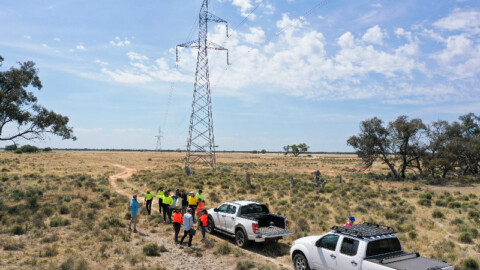Coliban Water has completed projects at its Bendigo and Heathcote Water Reclamation Plants as part of its biosolids reuse program, which saw around 215 semi-trailer truckloads of biosolids being reused on farms.
Manager Assets and Operations Steve Dunlop said the projects were part of the routine maintenance at the plants and efforts to increase resource reuse.
“Biosolids are the end product of the wastewater treatment process and can be used on farms as a fertiliser to improve and maintain soil.
“Seven biosolid drying beds covering an area of 3.8 hectares were cleared at our Bendigo Water Reclamation Plant. This amounted to 6,643 tonnes of biosolids, 215 semi-trailer truckloads, being reused on farms in our region.
“At the Heathcote Water Reclamation Plant two wastewater storage lagoons were dredged. The sludge from the lagoons was pumped into large containers called Geotextile bags so the water could be removed.
“The bags are made of a material that allows water to pass through it and are a low cost and efficient way of dewatering lagoons, while minimising odours. It was the first time we had used this technique at one of our plants.
“Around 230 tonnes of biosolids were removed from the Heathcote plant and taken to the drying beds at the Bendigo plant where it will dry further before being reused,” Mr Dunlop said.
Biosolids are one way of turning a waste product into a valuable resource. The wastewater that comes into the Bendigo plant is also reused in a variety of ways.
“We recognise the environmental value in reusing resources.
“Following treatment at our Bendigo plant, water is released back into the environment, used for on-site irrigation or, after further treatment at our Recycled Water Factory, used for irrigating Bendigo’s parks, public gardens, sporting grounds and ovals,” Mr Dunlop said.
The reuse of water and biosolids is carried out in accordance with the Environment Protection Authority Victoria and Department of Health and Human Services guidelines.














